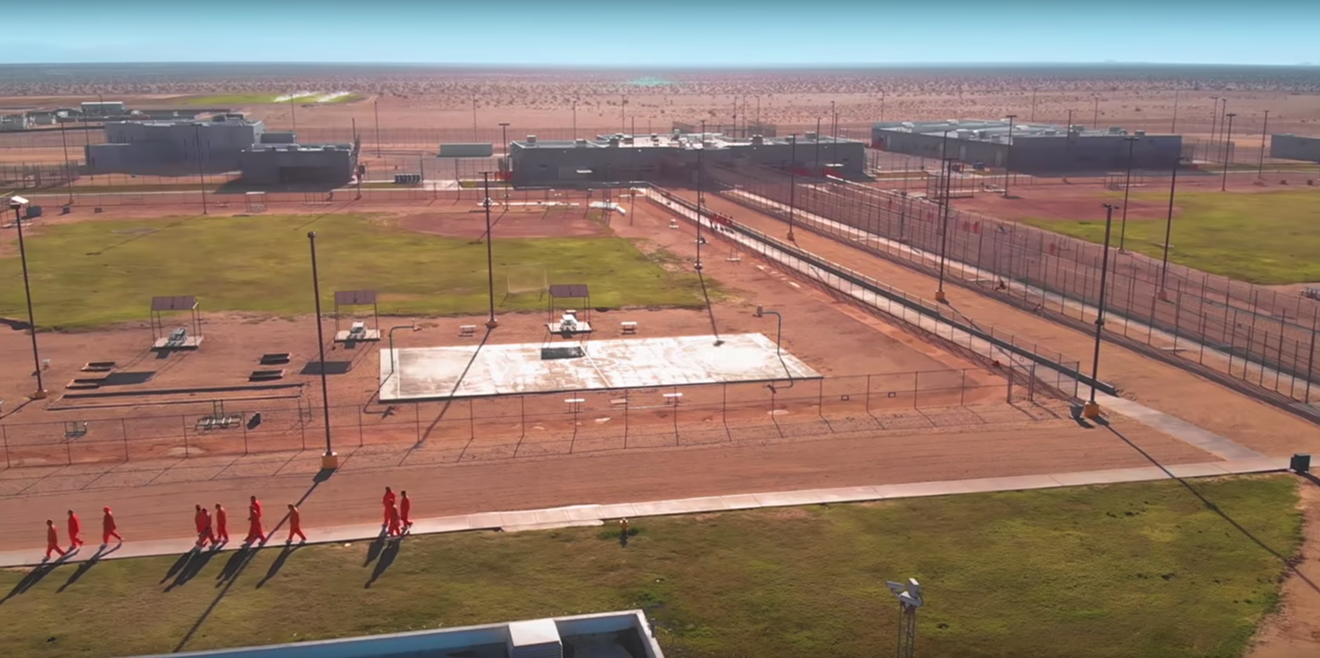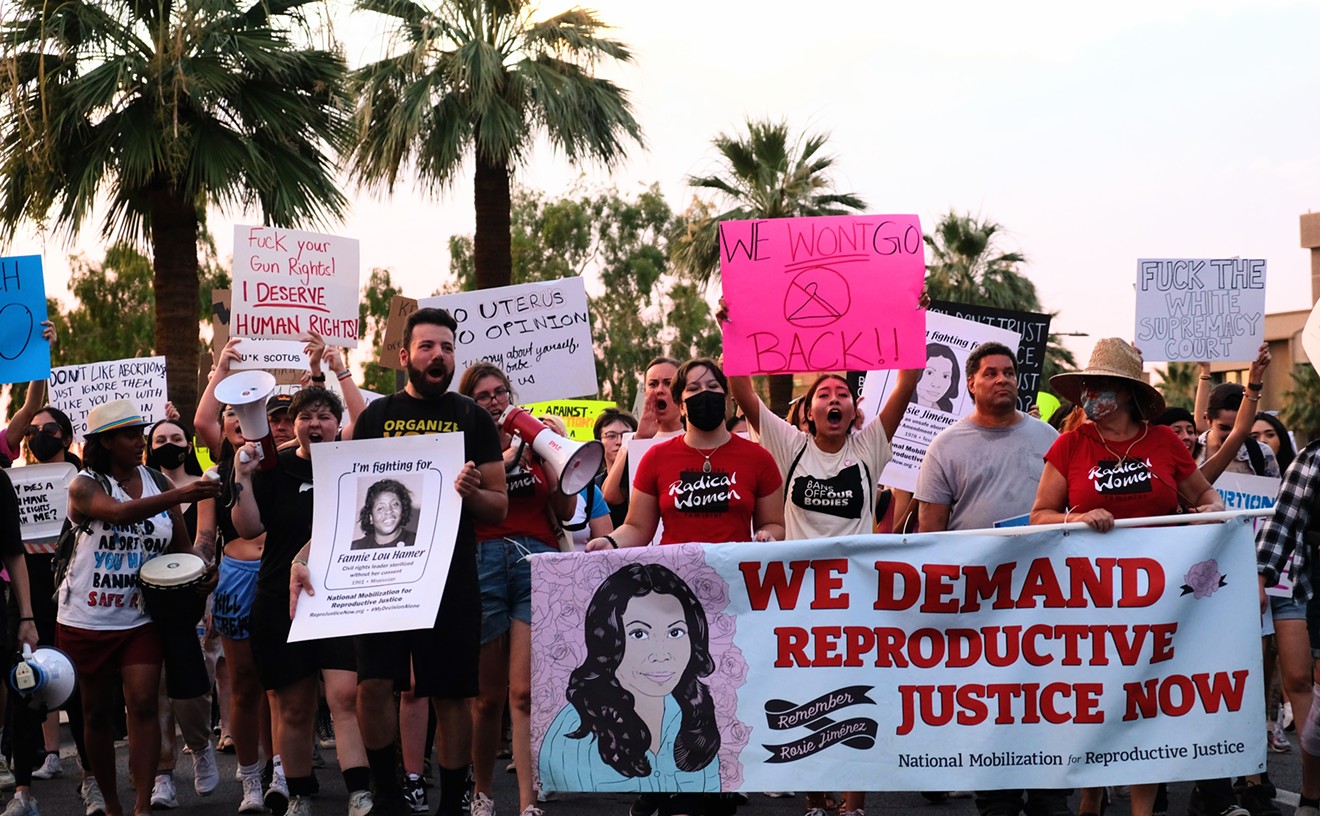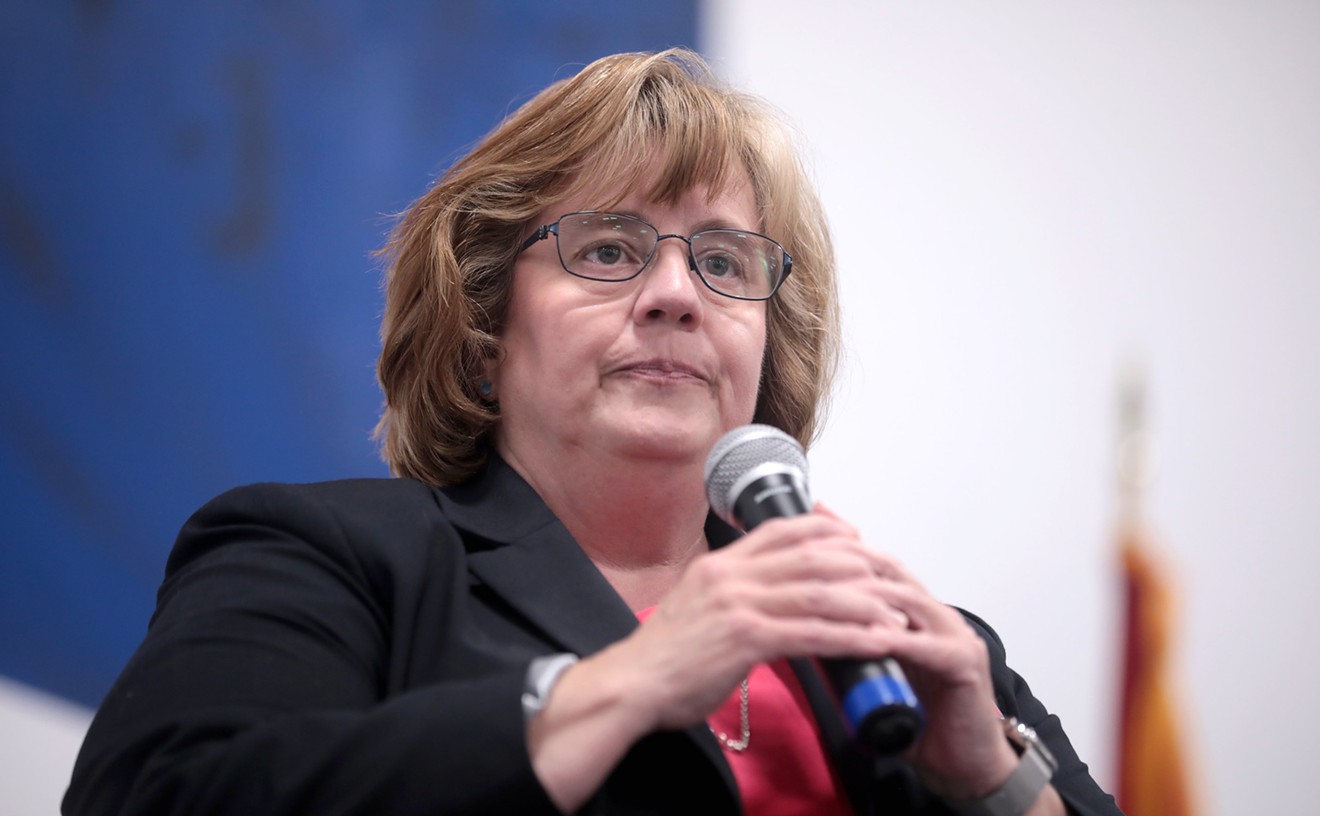The visit was prescheduled as part of the years-running federal lawsuit Parsons v. Shinn over inadequate medical, dental, and mental health care for people incarcerated in Arizona prisons. But that day, the stakes were different.
That morning, the World Health Organization had declared the new coronavirus a global pandemic. Later that day, with nine people in Arizona testing positive for COVID-19, the illness that the new coronavirus causes, Arizona Governor Doug Ducey would call a state of emergency. Organizers began canceling concerts and major sporting events; soon, schools would follow suit.
But as the rest of the state hunkers down, Arizona's prison system, with its longstanding failure to provide decent health care to inmates, is woefully underprepared to deal with potential cases of the new coronavirus. So far, no cases of the virus have been found among incarcerated people, but then again, it's not clear that any of the 42,000 people incarcerated in Arizona prisons have been tested, either.
These prisons have major staffing shortages, not just of medical workers but also of correctional officers, court filings show. State policies impose considerable barriers on incarcerated people when they need just basic hygiene supplies, like soap — never mind securing an appointment to see a nurse or doctor. Based on visits and observations from Kendrick and other lawyers in Parsons v. Shinn, incarcerated people so far have received little accurate information about COVID-19 or the measures, like social distancing and careful hand washing, that people everywhere else are being urged to take.
To date, the Arizona Department of Corrections has no plan to fix any of those shortfalls.
On Monday, the Prison Law Office, the Arizona Center for Disability Law, and the American Civil Liberties Union, which represent the plaintiffs, filed an emergency motion on Monday in federal court, asking U.S. District Judge Roslyn Silver to require the Arizona Department of Corrections to devise a formal plan, in collaboration with court expert Dr. Marc Stern, to deal with the potential spread of the new coronavirus in Arizona's 10 state-run prisons.
They also asked the judge to require the department to take steps that make it easier, rather than harder, for incarcerated people to practice basic hygiene and get medical care. Inmates are currently required to pay $4 to see a nurse or doctor, which some cannot afford. The prisons also force indigent inmates to spend money on soap, and they ban alcohol-based hand sanitizer.
Judge Silver gave the Arizona Department of Corrections until Wednesday to respond to the motion."They say this thing will die by itself." - Dr. Valerie Gilreath, medical director for Florence prison, on COVID-19
tweet this
“We are dealing with an urgent, life and death situation for tens of thousands of people," lawyers warned in a letter sent Saturday to Timothy Bojanowski, an attorney with the firm representing the Department of Corrections in Parsons v. Shinn.
Not only are incarcerated people at risk, but prison staff and the families and communities they go home to at the end of the day are too, they said.
'No Interest in Preparing for the Tsunami'
During Kendrick's two-day visit, she and other lawyers met on March 12 with Richard Pratt, medical director for the Arizona Department of Corrections, as well as other health administration staff, including the medical director for Florence prison, Dr. Valerie Gilreath.During that meeting, Pratt said, "I haven't seen anything yet," with regarding to educating incarcerated people about social distancing, the lawyers wrote to Bojanowski, the corrections department lawyer who was also at the meeting.
Meanwhile, Gilreath seemed unconcerned about COVID-19.
"'They say this thing will die by itself,'" Kendrick reported him saying, according to a declaration she filed along with the emergency order. Gilreath, who previously ran a drug treatment clinic and had no prior experience in prisons, also said, "We have people with dengue and we don't treat that," according to that declaration.
During Kendrick's visit, she asked incarcerated people what they'd been told about COVID-19.
They'd been told very little, it turned out.
"None of the men I spoke to in this housing unit knew anything about COVID-19, other than to express their resignation, and in some cases, hope, that they would be dead soon,” she wrote of her visit to the infirmary.
At another housing unit, "they uniformly said that the only information they had about the virus was from television, or word-of-mouth from other incarcerated people or staff," Kendrick wrote. One man "said he hoped that when COVID-19 came to the unit, that it would kill him quickly because 'I don’t want to live like this.'"
When Kendrick spoke to the porter who worked in the unit, he told her that he not been given "any additional cleaning supplies or instructions on disinfecting this unit in response to COVID-19.”
When Maya Abela, an attorney with the Arizona Center for Disability Law, which also represents plaintiffs in Parsons v. Shinn, toured the Florence prison, she spoke with 33 incarcerated people, "and every class member I asked reported that there had been no announcements and no information or patient education whatsoever provided to them regarding COVID-19 from ADC or Centurion healthcare staff," she wrote in a declaration filed along with the emergency order.
She did notice some COVID-19 signs posted on the window outside the dental clinic, she wrote.
When she spoke with the assistant director of nursing at the prison's health unit, the staffer said she hadn't received any instructions, other than to post posters, regarding COVID-19. She had been given a screening tool — a piece of paper with a list of questions — that had been given out, but there had been no formal training on using it.
The assistant director of nursing also reported that "no widespread general education concerning COVID-19 had yet been provided to class members [in Parsons v. Shinn] by healthcare staff as of March 12, 2020," Abela wrote.
As they toured the prison, lawyers found that the showers were filthy, and in several places, sanitizer dispensers were empty. "While in the Health Unit, I observed a hand sanitizer pump hanging on the wall that had a Post-It note on it stating, 'Out!'" Abela wrote."We spoke with multiple class members who'd had flu symptoms but hadn't reported them because they didn't have $4." - lawyers for the plaintiffs in Parsons v. Shinn
tweet this
One bathroom designated for incarcerated people "did not have soap or hand sanitizer," the lawyers wrote in their letter Saturday. Several inmates reported that excess soap — anything more than two bars — would be confiscated.
If an incarcerated person doesn't feel well, they typically have a copay of $4 for an appointment with a nurse or doctor, an amount that not everyone in prison can afford.
Those fees have yet to be waived by the Department of Corrections in Arizona, even as other states, like Minnesota, have done so in light of COVID-19.
Those costs already have prevented people incarcerated in Arizona from speaking up.
"We spoke with multiple class members who’d had flu symptoms but hadn’t reported them because they didn’t have $4," the lawyers wrote of their tour at the Florence prison.
In their emergency order, they asked Judge Silver to require the department to "“immediately suspend all ADC policies that require co-pays or, at a minimum, co-pays for any [inmate] that reports flu, cold, and/or COVID-19 type symptoms, and that this suspension be promptly communicated to the incarcerated population.”
The Department of Corrections has recently suspended all prison visits for 30 days. In an undated announcement, it said that it would reevaluate that policy after a month.
Contrary to what the lawyers found, the department's announcement claimed that it was "communicating with staff and inmates about how they can reduce the risk of contracting COVID-19."
A spokesperson for the Arizona Department of Corrections did not respond to a request for comment from Phoenix New Times about what detailed plans it had, if any, to address COVID-19. A link to "Coronavirus Information" on the department's website redirects to the Arizona Department of Health Services.
The governor's office did not respond to a request for comment.

Arizona Governor Doug Ducey declares a state of emergency over the novel coronavirus on March 11, 2020.
State of Arizona
Asked whether the Department of Health Services had issued any guidance to the Department of Corrections, spokesperson Chris Minnick said on Tuesday, "I know there is guidance being developed, but I do not know if it has been posted to the website yet."
In response to detailed questions from New Times, a spokesperson for Centurion, the for-profit company with which Arizona contracts to provide health care in its prisons, sent a statement saying that it was working with the Department of Corrections and local health departments "to ensure our staff are prepared to quickly identify, isolate, and manage the possible spread of contagious illness in the correctional facilities that we serve."
The spokesperson added, "Centurion has provided training on COVID-19 to our staff, and will continue to take additional precautionary measures as necessary."
Lawyers with the Prison Law Office, the American Civil Liberties Union, and the Arizona Center for Disability Law see things differently.
“ADC and Centurion to date have exhibited no interest in preparing for the tsunami that is already in the community and may soon crash through the prison gates (if it is not there already),” they warned in their emergency motion.
Shortages All Around
Arizona prisons also lack the space to isolate people, which is key to preventing the spread of the new coronavirus. Even solitary-confinement cells are right next to each other."Most of the prisons don't actually have anything close to an infirmary or outpatient medical housing," Kendrick told New Times by phone Tuesday. In Florence, she said, the infirmary has three rooms designated for isolation.
In advice to sheriffs and jail administrators in Washington state, Dr. Marc Stern, the court expert in Parsons v. Shinn, warned that they "should also do what you can to not make placement in isolation feel punitive."
Arizona's prisons are short-staffed, too.
A report to the Legislature in December put the vacancy rate of correctional officers at nearly 20 percent, on average. At Eyman prison, which is near Florence, the vacancy rate was nearly twice that — 38.5 percent — and in Florence prison, it was just over 32 percent.
Centurion has not fully staffed prisons in Arizona with enough nurses and doctors required under normal circumstances, much less during a pandemic like COVID-19.
According to the emergency motion, the prison at Eyman has 30 vacant health care positions, with just half of the full-time registered nurse positions filled. In Florence, registered nurse positions are 72 percent full. All told, the prison needs more than 20 more nurses in order to be fully staffed.
Meanwhile, the prison in Yuma has no staff physician, according to court filings.
“If COVID-19 arrives in the prison and health care staff is exposed (or if they are exposed in the community), Defendants need to be able to fill those positions so the provision of health care can continue uninterrupted," the lawyers warned in their letter. "It does not appear that Defendants have a plan for that eventuality.”
Kendrick said she was deeply concerned about the toll that COVID-19 could take on people incarcerated in Arizona's prisons.
"Seeing these really frail and sick men in the infirmary really hit home for me," she said. "Even people incarcerated who are relatively healthy really are sitting ducks in these prisons because of the conditions they live in. I’m very, very, worried about this."
And lest people think whatever happens in prisons, where people are separated from the rest of society, won't affect them, that notion could not be further from reality.
The Department of Corrections employs more than 5,000 corrections officers; that number doesn't include other employees and health care staff, all of whom enter and exit Arizona prisons on a daily basis.











